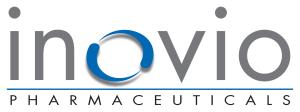
Shares of Inovio Pharmaceuticals (INO) tumbled around 10% today on the news that the Roche deal with Inovio’s Prostate cancer vaccine, known as INO-5150, is being dropped. Both Inovio and Roche were to collaborate on INO-5150 and Roche was going to help fund the pre-clinical costs and other clinical expenses. The reason for the termination of this deal is unclear; Roche is still partnering with Inovio on its pre-clinical hepatitis B vaccine known as INO-1800.

Despite this setback Inovio is still planning to fund INO-5150 on its own and to initiate a phase 1 clinical trial in the 1st half of 2015. This setback was not expected but Inovio will still continue on with its plans to launch the trial. Inovio has already demonstrated that its main product VGX-3100, which treats patients with cervical dysplasia, has already proven to be effective in a phase 2 clinical trial. That is, VGX-3100 had shown to create a specific T-Cell response in 49.5% of the patients in the trial meaning that the HPV disease was knocked back to pre-cancerous levels CIN 1. Or in layman’s terms, it completely removed the disease. This compares to a placebo that only achieved a 30.69% rate and means that Inovio’s vaccine was statistically significant.
Despite the setback with INO-5150, Inovio is still collaborating with Roche on the INO-1800 hepatitis B vaccine which is a bigger market. Plus Hepatitis B has millions of patients suffering from the disease and there are very limited treatment options. As opposed to prostate cancer which has numerous competitors already such as Johnson & Johnson’s (JNJ) Zytiga drug and Medivation’s & Astella’s (MDVN) Xtandi drug. Invio still has a pipeline full of vaccine candidates that target large markets, for instance it is working on HIV as well. The company is still expecting to advance its lead candidate VGX-3100 into a phase 3 trial where it will may or may not add an adjuvant — an additive property to enhance a patient’s immune response — that may boost the efficacy of the vaccine in patients with HPV.















